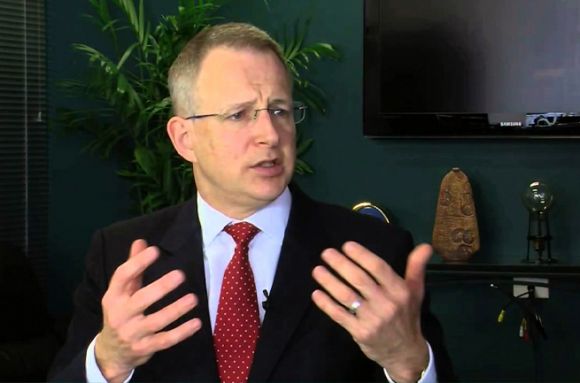The Government's new financial plan for the NBN is more about protecting its own investment as opposed to what's best for the country. Paul Budde reports.
Rather conveniently, NBN Co has removed all forward financial projections beyond the next 12 months in its Corporate Plan for 2022, released last week.
As I also mentioned when the Government released its financial results a few weeks ago, understanding how the company is really performing remains rather murky. The new corporate plan only adds to that lack of clarity.
Of course, it is no secret that the company is struggling with its financials. It has been unable to lift its average revenue per user (ARPU) as it has been projecting for many years. From now on, projections for revenue, earnings, net profit and CapEx will no longer be provided because of its ongoing efforts to secure debt financing.
The company’s guidance for FY22 is:
‘...annual revenue and other income... of between $5 billion to $5.2 billion and EBITDA in the range of $3 billion to $3.2 billion.’
In last year’s Corporate Plan, it had forecast revenues of $5.3 billion for FY22 and EBITDA of $3.3 million.
The Corporate Plan also offers very little detail on any programs or initiatives underway at the company. However, it is understood that the company is working on its IT transformation that should lead to significant cost savings and more reliable systems.
After initial refusals, the Government has finally now also released a new Statement of Expectation (SoE) for NBN Co. The last time the Government issued an SoE was in 2016.
Based on ongoing comments from the Government over the last decade, their expectations are all to do with protecting the Government's investments and not necessarily about what is best for the country. The new SoE emphasises the importance of NBN Co “operating commercially”. The Government still wants to maximise its investment, especially as it will eventually start the privatisation process of the company. This means bad news for the industry and its customers as it provides little room for better prices.
Brokers have also expressed their concerns about NBN Co stepping up its private-for-public debt replacement program. The company still owes about $11.7 billion to the Government which is due to mature in 2024.
NBN Co has appointed ANZ, Westpac and MUFG to call for indications of interest ahead of a three-year $500 million-plus deal that would mature at around the same time as the government loans, which the new funds would be used to pay off.
On a more positive note, it has also announced that another 300,000 homes and businesses will become eligible for fibre upgrades by ordering selected higher-speed retail plans.
The additions mean fibre extensions announced so far will pass 1.4 million homes and businesses, with commitments to roll out new fibre to pass two million premises by the end of 2023. I can’t help myself claiming vindication for the fact that what the country needs is a fibre to the home/curb broadband network as it was originally envisaged 15 years ago.
The report says the average download performance in May was 98.4% of plan speed during all hours and 97.6% during busy hours.
Dodo and iPrimus, both part of the Vocus Group, improved by 5.4% overall, which was the largest improvement of the telcos during the period.
The SoE also highlights the Government’s expectations that the company will continue to improve outcomes in regional and remote Australia. It also expects the company to support its retailers, deliver reliable and affordable services and promote competition and innovation. While there is, of course, nothing wrong with that, it doesn’t provide any indications on how this will be measured and what sort of targets the Government has in mind. Without that, these remain rather hollow expectations.
The lack of a requirement for key measurable outcomes and the fact that the company doesn’t provide any forward projections basically means that the company can do what it wants within those broad guidelines. Again, the focus is on its financials rather than on what it will deliver.
Paul Budde is an Independent Australia columnist and managing director of Paul Budde Consulting, an independent telecommunications research and consultancy organisation. You can follow Paul on Twitter @PaulBudde.
Related Articles
- Government still holding Australia back in global broadband ranking
- NBN Co hits revenue target after constant downward revision
- Commonwealth Bank moves into NBN market
- NBN problems a result of Coalition Government's cost-cutting policies
- Internet access still lacking in parts of Australia
 This work is licensed under a Creative Commons Attribution-NonCommercial-NoDerivs 3.0 Australia License
This work is licensed under a Creative Commons Attribution-NonCommercial-NoDerivs 3.0 Australia License
Support independent journalism Subscribe to IA.














